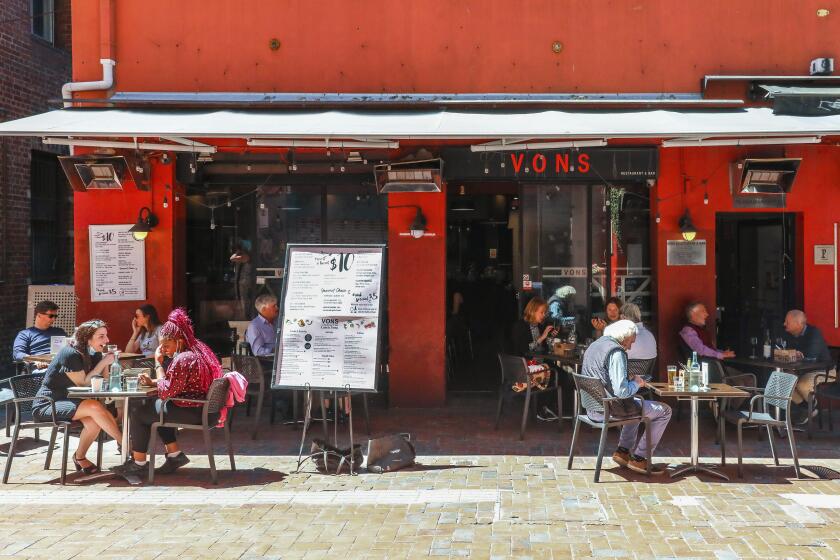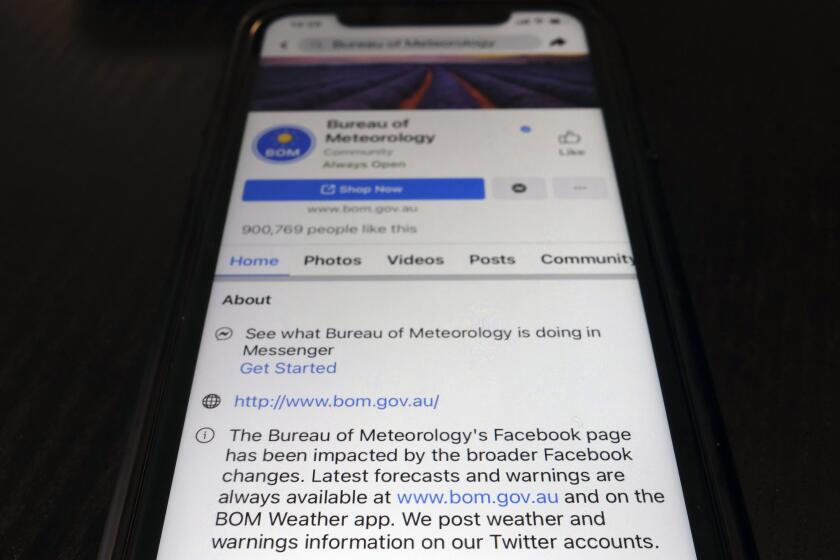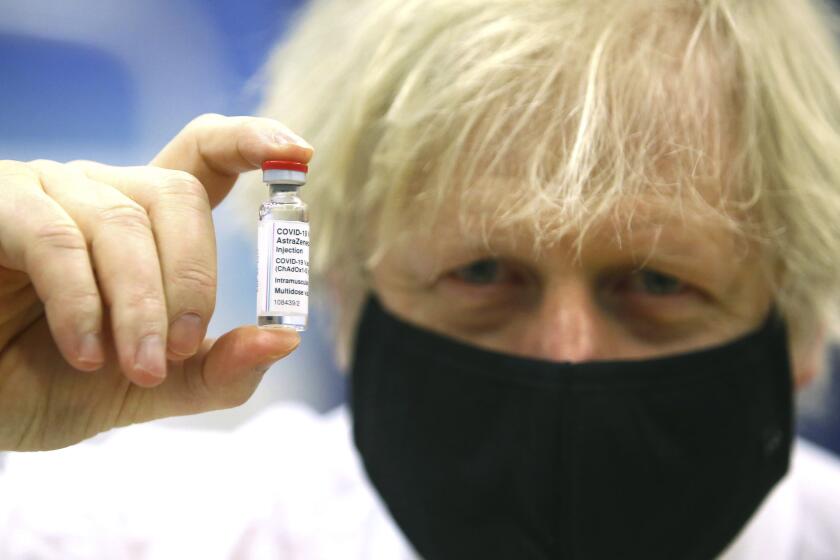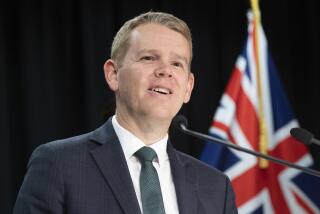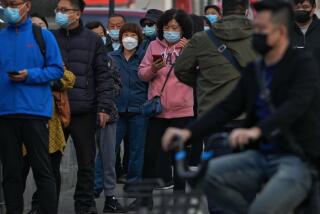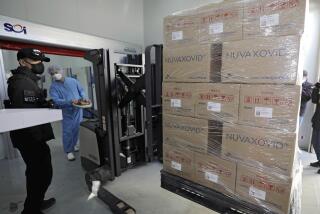With COVID-19 mostly tamed, Australia starts vaccinations in laid-back fashion
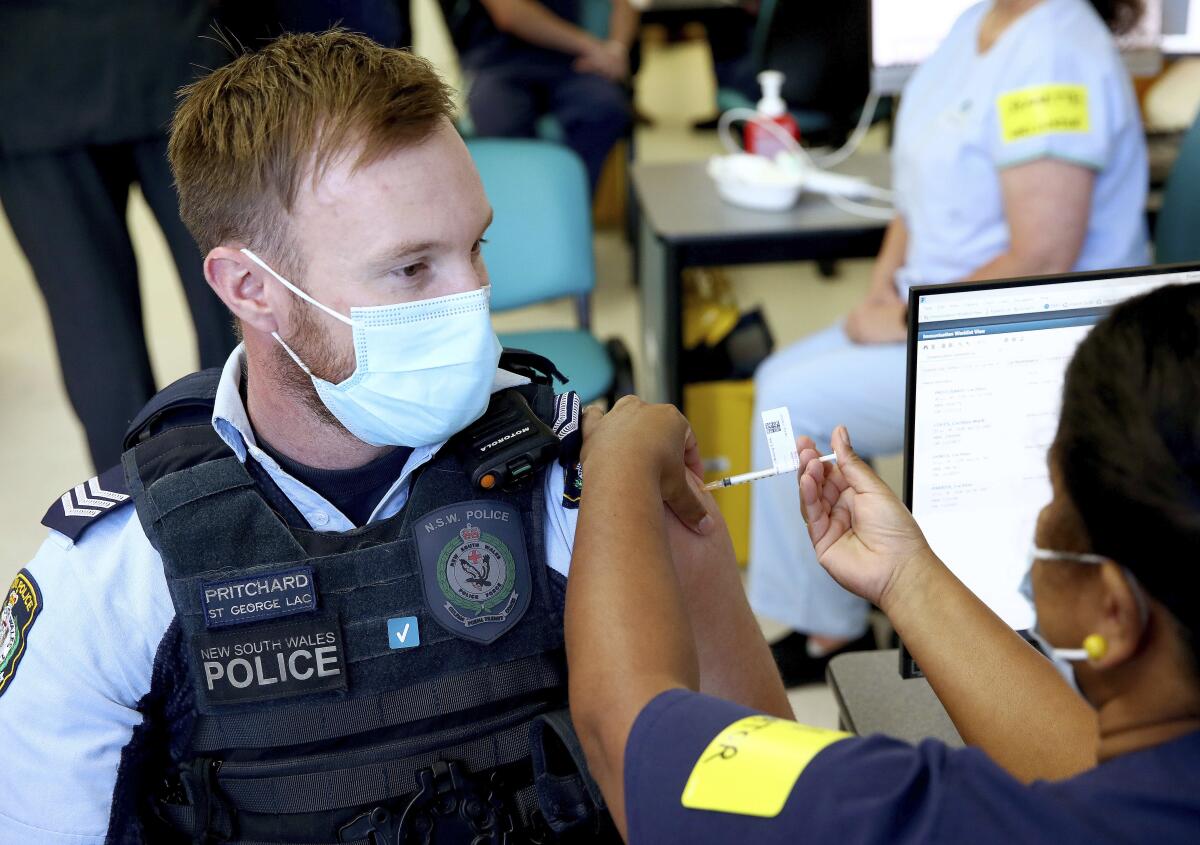
- Share via
CANBERRA, Australia — Australia started its COVID-19 inoculation program Monday, days after its neighbor New Zealand, with both countries deciding that their relatively successful handling of the pandemic did not require the fast vaccine rollout urged in other parts of the world.
Other Asia-Pacific nations that have dealt comparatively well with the coronavirus also started their immunization campaigns only recently or are about to do so, including Thailand, Vietnam, Cambodia and Singapore.
Catherine Bennett, an epidemiologist at Australia’s Deakin University, said countries not in the midst of a coronavirus crisis benefit from taking their time and learning from others, such as the U.S., that have taken emergency vaccination measures.
“We’ve now got data on pregnant women who are vaccinated. Natural accidents, like incorrect dosing, happen in a real world rollout,” Bennett said. “All of those things are really valuable insights.”
Australian Prime Minister Scott Morrison had his first dose of the Pfizer-BioNTech vaccine Sunday in a show of confidence in the product. Australia is prioritizing building public confidence in COVID-19 vaccines ahead of speedy delivery.
Health and border-control workers, as well as nursing-home residents and workers, started getting the Pfizer shot Monday at hubs across the country. Australian Health Minister Greg Hunt will get the AstraZeneca-Oxford University vaccine when it becomes available within weeks.
The lengthy lockdown was Melbourne’s second since the COVID-19 pandemic began and has badly hurt the city’s economy.
Australia has recorded only 909 COVID-19 deaths out of its population of about 25 million. The vast majority of coronavirus cases in the country are travelers who were infected overseas. All arrivals in Australia are subjected to mandatory 14-day hotel quarantines.
New Zealand began inoculations last week after receiving its first batch of the Pfizer vaccine.
The island nation of 5 million has successfully stamped out the spread of the coronavirus, and the first people to get the shots are border workers and their families — a different priority group from that in most countries, where healthcare workers and older people are top of the list. The idea is to stop the coronavirus from spreading from any infected travelers who arrive in New Zealand.
The rollout of a program to vaccinate the broader population won’t begin until the second half of the year, behind many other countries.
In Australia, some infectious-disease and ethics experts at Australian National University have accused the government of hoarding vaccines and argued that it should send surplus supplies to countries in desperate need.
Facebook kept Australians from sharing news and blocked some government communications and commercial pages, amid a fight about paying for content.
Elsewhere in Asia, Thailand, which has seen only 83 COVID-19 deaths, has yet to start vaccinations. It will receive the first 200,000 doses of the Chinese-developed Sinovac vaccine Wednesday. The Thai government has ordered 2 million doses from Sinovac and 61 million doses from AstraZeneca.
The Thai government has a policy to provide free vaccinations to all residents and aims to inject half of the population this year. The government said it hopes to begin the vaccinations a few days after the first batch of vaccines arrives.
Vietnam, which has recorded only 35 COVID-19 deaths, announced last week that it would receive 5 million vaccine doses by the end of February and hopes to start inoculations as early as the beginning of March. Five million people, mostly front-line workers, will be given the first shots.
Cambodia, which has yet to report any coronavirus-related deaths, received its first shipment of 600,000 vaccine doses from China on Feb. 7, part of 1 million doses Beijing donated. Cambodia began its vaccination program Feb. 10, starting with Prime Minister Hun Sen’s sons, government ministers and officials at a state-run hospital.
The British government says it aims to give every adult in the country a COVID-19 shot by July 31, at least a month earlier than its previous target.
In Singapore, which has reported 29 COVID-19 deaths, some 250,000 residents, including healthcare workers and other front-line workers, had been vaccinated as of last week, according to health officials. The aim is to get an additional 1 million people to receive their first dose of the vaccine by early April.
Laos, which has reported no COVID-19 deaths, received 300,000 doses of the Sinopharm vaccine Feb. 8. An official at the health ministry said it expects 20% of Laos’ population to be vaccinated within the year.
More to Read
Sign up for Essential California
The most important California stories and recommendations in your inbox every morning.
You may occasionally receive promotional content from the Los Angeles Times.
